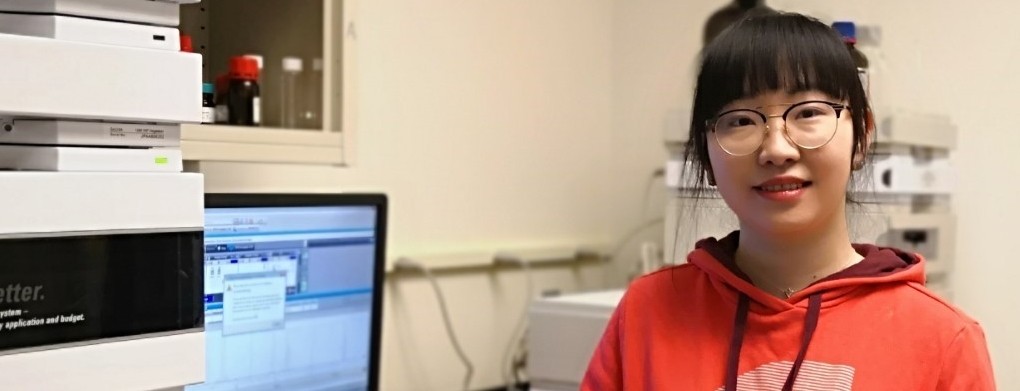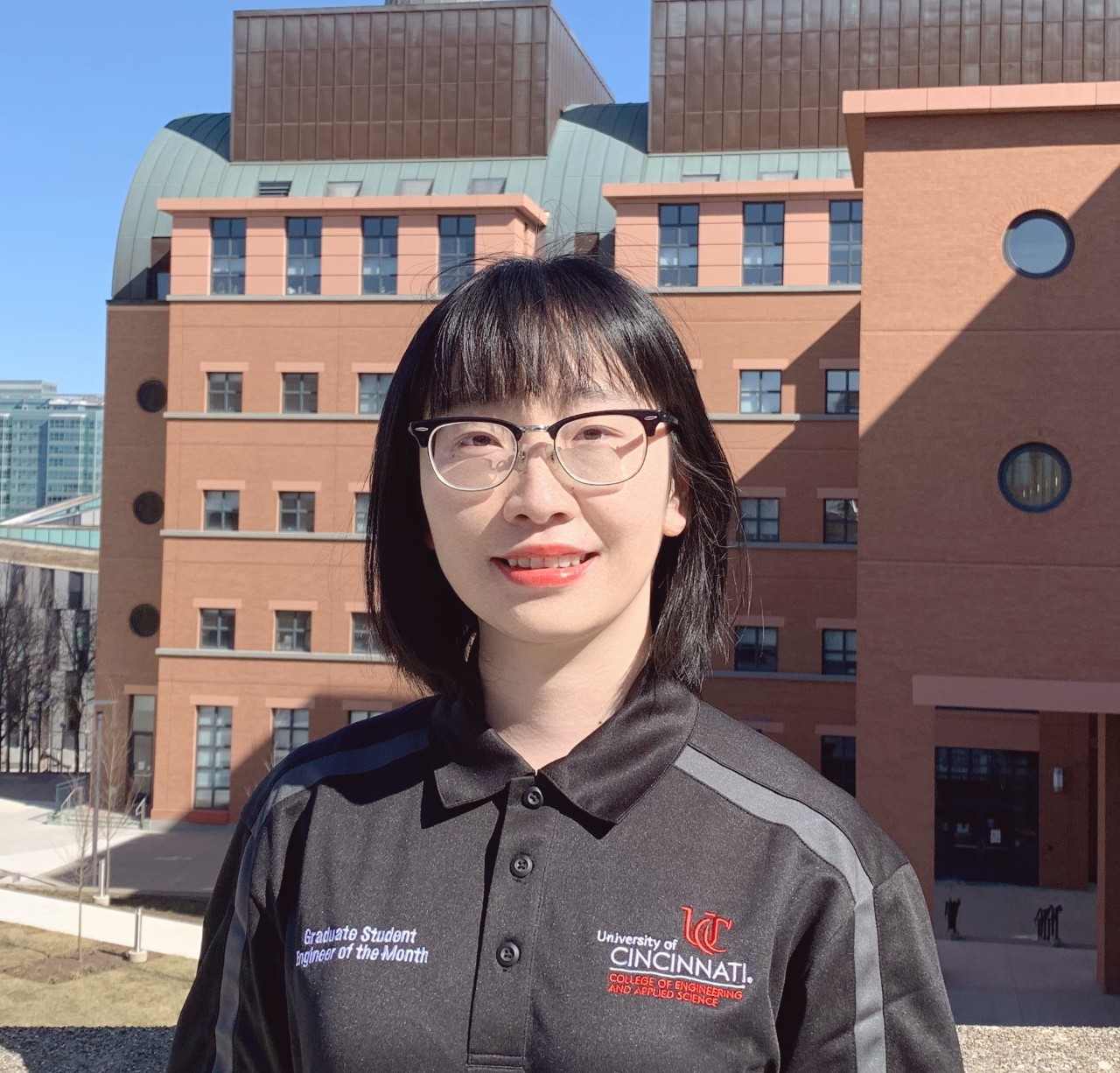
Chemical engineer produces biofuels from waste materials
Ph.D. student uses her environmental and chemical engineering skills to create renewable fuels
Yu Zhang came to the University of Cincinnati in 2014 to begin a master’s degree in environmental engineering.
Today, she is continuing her research work developing renewable biofuels from waste while pursuing her doctoral degree in chemical engineering. Zhang was named Graduate Engineer of the Month by the UC College of Engineering and Applied Science. Here, she shares her research goals, UC experience and the impact she hopes to make through engineering.
What drew you to UC and why did you stay for a doctorate after earning your master's?

Yu Zhang. Photos/provided.
UC can provide me with a high-level education and academic resources — and it has a beautiful campus. I stayed for a Ph.D. after my master's because my advisor, Maobing Tu, Ph.D., is at the top of his research field and he has provided me with generous instruction for polishing my skills and vision for my future career. I enjoy working with him as he is a highly productive professor who is very diligent and helpful to students. During my time as a Ph.D. student in Dr. Tu's group, I’ve been involved in several research projects through the EPA, DOE and NSF.
What does your research with biofuels entail?
My research work focuses on producing renewable biofuels/bioproducts from waste materials, such as forestry/agricultural residuals (woody biomass) and wastewater sludges, through microbial fermentation. I have developed a cost-efficient fermentation process to produce biofuels, like ethanol and butanol, and biochemicals, such as volatile fatty acids, and investigated the reaction mechanisms with advanced analytical approaches (such as mass spectrometry).
Not only does this process enhance energy sustainability, but it also solves environmental problems. These biofuels/bioproducts derived from waste materials could be considered as great alternatives to petroleum-based fuels and chemicals. My research work will also benefit some environmental issues such as greenhouse gas emission and waste management.
You’ve studied both chemical and environmental engineering. How are these two areas complementary?
The diverse courses from both the environmental and chemical engineering programs help me to build a solid background for my research projects. My Ph.D. dissertation is multidisciplinary work that requires knowledge from environmental, chemical and biological engineering. During my M.S. studies at UC, I was involved in an EPA project to solve the oil spill problem. It broadened my horizons to recognize various severe environmental issues around the world.
To me, chemical engineering is a major that could change the world by producing valuable products. It’s an excellent extension and supplement for my environmental engineering studies and it has expanded my research scope. We can produce valuable chemicals/products toward solving environmental problems. I believe my multidisciplinary knowledge and background will make me more competitive in my future career.
What are a few of your accomplishments of which you are most proud?
For my research work, I was involved in five federal research projects and three internal projects as key personnel and published five papers in top journals and one provisional patent. One of my publications received 45 citations in about two years.
What are some of the most impactful experiences during your time at UC?
During my time at UC, my supervisor Dr. Tu always encouraged me to attend and present at national conferences. I have attended eight conferences and given five oral and six poster presentations. Last year, I was invited to give a seminar to the graduate students in our department to share my research work. These experiences not only allow me to learn from the latest research findings and network, but also build up my confidence to share my work in front of audiences. It significantly improved my presentation and communication skills which is particularly important in academia or research.
What motivates you to work hard every day in your field of study?
Failure always happens in experiments, especially for the bio-related work. My routine research work is to find the solution in each single failure and then move on to achieve the project goal. The feeling of accomplishment that comes with solving these challenging problems is always my greatest motivator.
How do you like to spend your free time?
Outside of research/class, I like to spend my time on traveling. As a foreign student, my goal in the U.S. is not only the research study, I also want to learn more about this country and the culture here to experience a totally different life from my home country. Traveling is also a very good time to refresh myself.
Related Stories
Exploring Careers in Robotics Engineering: A Path to the Future
March 28, 2025
Discover robotics engineering careers: skills, paths, and opportunities in manufacturing, healthcare, and space. Explore salaries and how to start at UC’s CEAS. Shape the future with innovation!
UC mechanical engineering student helps send science to the Moon...
March 28, 2025
UC student Ilyas Malik aids Firefly's lunar mission for NASA's CLPS. Explore his journey, UC's co-op impact, and aerospace insights. Discover how education transforms career paths in space exploration.
UC welcomes new engineering faculty
March 28, 2025
UC welcomes three new faculty this spring in mechanical engineering, aerospace engineering and a new department head in engineering education.
